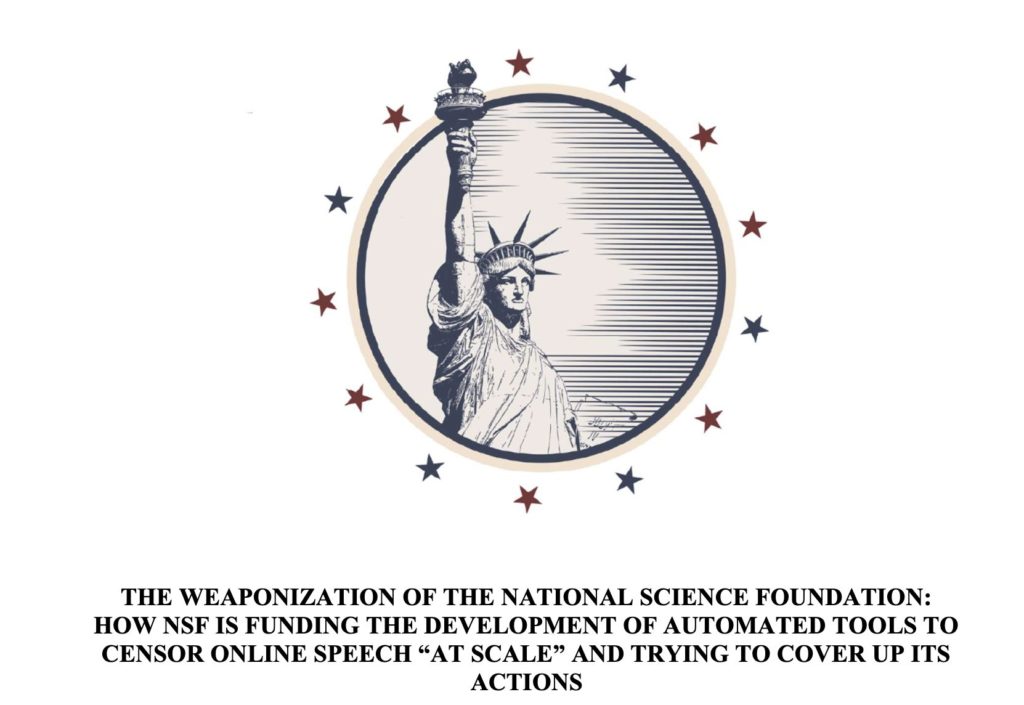By The American Contemporary
Washington Times reported that various Biden administration aids and administrators summoned executives from Amazon to the White House during the height of the COVID-19 pandemic. During these meetings, Biden representatives spoke to Amazon about combating the spread of what they deemed as COVID misinformation, particularly as it related to book sales from vaccine-questioning or anti-vax authors. According to Amazon emails released by the House Judiciary Committee, these meetings ultimately ended in success for the Biden administration, as Amazon shortly thereafter announced a “do no promote” policy which was introduced to reduce exposure of books by authors who questioned the safety or efficacy of the COVID vaccination. These reports appear to be corroborated by the New York Post, who further states that Amazon, while initially hesitant, eventually introduced a manual review of media that was deemed as “too visible”.
It should be noted that while the administration did not appear to have directly requested books not be sold, nor attempted to stop accessibility to acquiring these books, they did appear to request a reduction in visibility and exposure, and more manual checks to ensure customers were not put in front of what they deemed to be misinformation. This couples with extensive prior reports which have come to light outlining a detailed and methodical effort by the Biden administration to combat what they consider misinformation through technological and social media companies, including Facebook, Twitter (now X), and Google/YouTube.
Just several months ago, these reports were brought before a US district court to determine if these Biden officials engaged in coercion, intimidation, or in any way influenced these private companies to comply with their mission to limit content that would cause hesitancy and concern over the COVID vaccine. The court found that these officials were guilty of coercion, and a subsequent appeals court issued a communication ban between Biden officials, the FBI, the Surgeon General’s Office, and the CDC from communicating with social media companies. The Supreme Court issued a stay on the litigation while it continues to consider the case.
But these are just some examples of rampant systemic corruption and a wide-reaching campaign to limit, censor, or control the proliferation and accessibility of information. A recent press release (which you can read here) from February 6th, 2024 by the House Judiciary Committee accuses the NSF (National Science Foundation) of using taxpayer moneys to finance research in AI-powered censorship efforts. In the report, the Committee reviewed multiple grants awarded to universities and research groups around the country to combat the increase in misinformation which it believes arose following the COVID-19 pandemic. Most grants focused on research for AI-powered content moderation based on factors such as user search history, search content flags, and material content of the resources the individual was seeking to access.
Perhaps most concerning however are several of the proposed purposes and rationales behind the research efforts, as stated by the grant writers themselves. One group of MIT-researchers said when describing their project,
“broad swaths of the public cannot effectively sort truth from fiction online”
Particular groups that were deemed to struggle with discerning fact from fiction included “rural and indigenous communities, military veterans, older adults, and military families, and older adults”. Further, the same MIT research group cited a prior study to support their proposed project, which targeted two conservative groups of Americans based on online search practices. These Americans were chosen as they were deemed to “hold the Bible or the Constitution as sacred” and “distrust journalists and academics”. The end result of this study, according to the researchers, was a spread of misinformation or poor understanding, as these individuals would act as subject matter experts and proclaim themselves to understand the world around them, while only having read the top search results from Google. As a result, these researchers deemed them biased and potential spreaders of misinformation, as compared to academics who are more lateral readers and researchers.
Finally, the report addresses the dramatic power differential established between social media companies and these researchers, as the researchers have the ability to generate negative press coverage based on the research outcome of these projects. For example, a study which finds poor response times of social media outlets to removing harmful information results in violence or other negative societal effects could impact both the perception of the company and potentially open them up to legal ramifications. As such, these companies tend to ensure these researchers are accommodated in methods that are not normal for impartial scientific research, and could not only impact the end result of the study, but also embolden said researchers to make more extreme demands.
Analyzing these reports, it is clear that considerable effort is being placed in censorship research and operations. Of course we would be remiss to neglect the very real and very accurate state of misinformation proliferation online. Misinformation can be hazardous, especially so in more modern times when false data can be spread across the world in the blink of an eye. Further, confirmation bias and the ability for individuals to find “sources” which confirm to their already-existing opinions exacerbates the trend of party polarization and extremism of ideals.
However, the notion that individuals who are not academics or are of a particular socio-economic or ethnic class are incapable of doing their own research or arriving at their own conclusions is both laughable and bigoted. While it is undeniable that an academic would have more research experience and would likely spend more time on performing research, the accessibility of resources to the common man in the modern age allow individuals to study and grow intellectually in ways previously thought impossible. Furthermore, it is not impossible to consider that an individual who only briefly looks into a topic could arrive at a logical conclusion. Sure, they would not have the depth to write an extensive summation of the topic, but their opinion (especially as it relates to more moral or societal issues) is no less valid as a result of their prior experience. If only professional researchers were only capable of crafting valid opinions on topics of their study, there would be nearly no discourse and advancement at all, as so few people truly study such niche topics.
From an academic perspective, this is also exceptionally alarming. An academic is trained to be skeptical of both published peer-reviewed works (as fraud is a frequent and unfortunate occurrence) as well as general assumptions regarding the nature of our world. Science and society advance by asking questions, forming hypothesis, testing said theories, and reporting on those results. However, those results can never be said to be true, as follow up studies, new information, and alternative viewpoints always arrive to amaze and confound us all. By stating that these individuals are not capable of discerning fact from fiction, and comparing their understanding to academics who are better equipped in their mind, they make the assumption that the consensus in academia must always be correct. This is not only untrue, but it is harmful for society and academia to think in this manner. Recall, at one point, medical professionals encouraged bloodletting, leeches, and lobotomies. At one point, the Earth was the center of the Solar System. At one point, babies could be made via alchemy by allowing sperm to be mixed with horse dung for 40 days (although to be fair, that was mostly Paracelsus’s opinion, though he is the father of toxicology). Suffice to say, academics are not always correct, and the assumption that they are proves a fundamental lack of understanding in the scientific process.
It should also go without saying that such generalizations are bigoted, as it presumes that all peoples in a particular group are somehow stupid, ignorant, prideful, or otherwise incapable of doing their own research. Further, the proposition that one group suffers more than others from misinformation would imply that these groups would subsequently be targeted more readily with the proposed AI-censorship solution. This would, in a way, throttle accessibility to public forums for members of this group, and thus impacts their access to free speech. Additionally, additional AI-monitoring of these groups could result in accumulated information pertaining to these individuals and governmental oversight of them. These are speculations of course, but it is a legitimate concern when specific groups are targeted.
Finally, beyond the political and academic impacts of these findings, government censorship only serves to embolden and empower centralized authorities to control its people. Limiting access to information limits thought, and further may impact discourse in the nation overall. It has the potential to change learning and the opinions of people in the country. It helps prevent questioning of authority and those perceived to have superior power or understanding over the population. And in summary, it is something that must be wholly unacceptable for Americans, and truly citizens of the world. Of course that is not to say that secrets don’t have their place in politics, nor does it allow slander, calls for violence, or other unprotected speech or the results of one’s use of free speech. However, when centralized governmental agents begin to dictate what is and is not truth, everyone stands to suffer.

